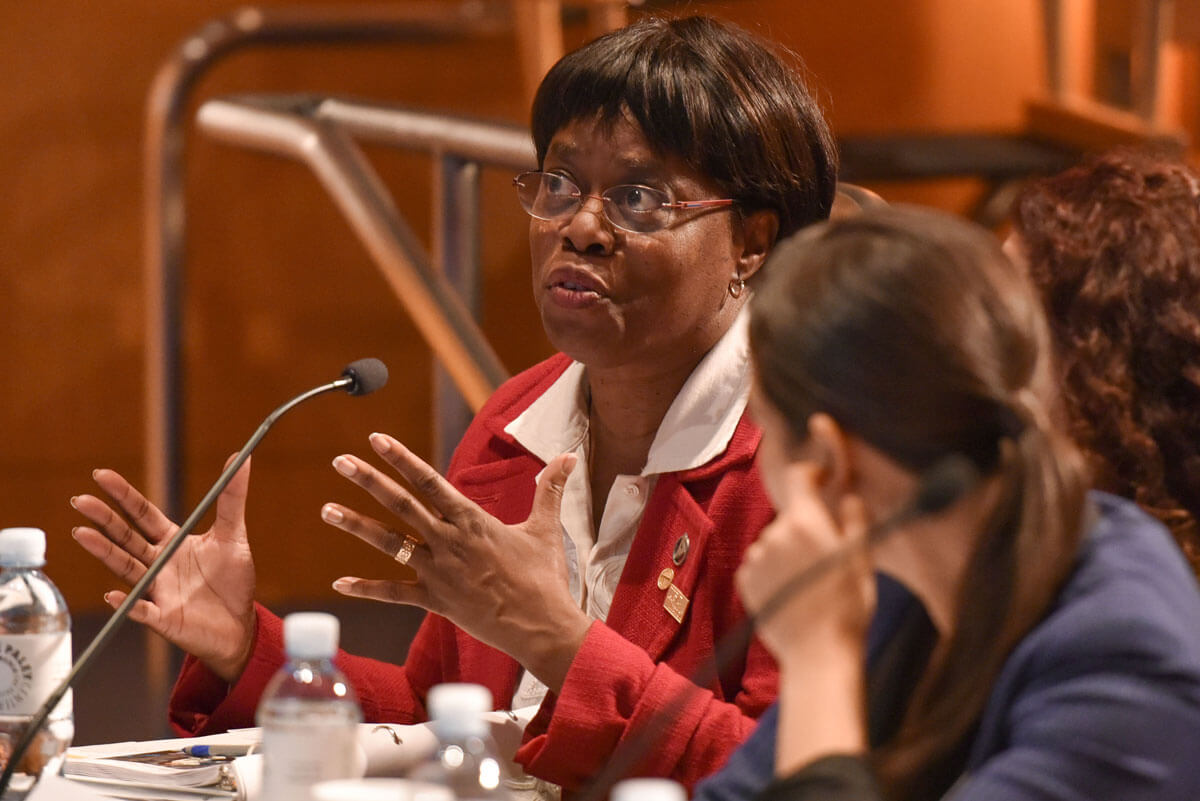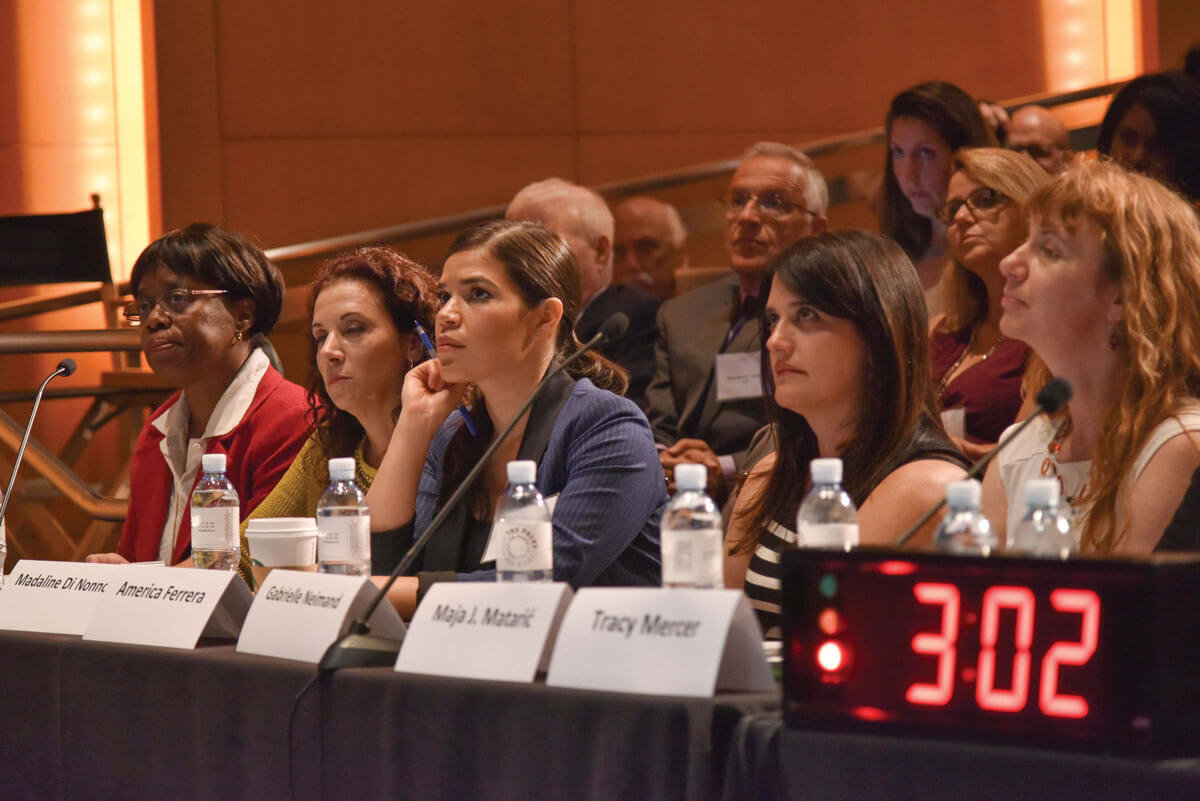Inspiring the Next Generation of Women in STEM
It is perhaps well known by now that girls and young women enter science, technology, engineering and math (STEM) programs at much lower rates than men. As an African-American woman who made her career first in math, then in engineering, and finally in leadership positions, I know firsthand the difficulties of persevering —and succeeding — in STEM. Many of the challenges that female students and professionals face in STEM come from broadly held perceptions in society that are very difficult to change.
In recent years, I have supported many programs and efforts designed to encourage young women to enter and stay in these fields. I’ve seen how effective mentoring and outreach organizations can be, but I’ve also observed that many of these programs tend to have a limited scope and, furthermore, don’t always directly address the problems of perception that are deeply ingrained in our society. I believe it is absolutely crucial that we reach out to people in a way that blends their general interests, hobbies and passions with STEM.

So it was with great pleasure that I accepted an invitation to serve as a judge for a competition called “The Next MacGyver.” The competition was lead by the USC Viterbi School of Engineering, National Academy of Engineering and Lee Zlotoff, creator of the hit TV series MacGyver. The goal of the contest was to find a great idea for an engaging TV show featuring a strong, female lead character who uses engineering to solve difficult problems. The original MacGyver inspired a lot of young people to become engineers in the ’80s and ’90s, and this new show is designed to do the same thing, but this time with a female role model.
The beauty of this concept is that it has worked in the past. In the ’70s and ’80s, a number of TV shows were able to challenge long-held stereotypes by casting female characters in previously uncommon roles (Police Woman, The Mary Tyler Moore Show, One Day at a Time and a few others). This kind of inclusive storytelling has the power to affect societal attitudes and behaviors for the better.
I’ve seen how effective mentoring and outreach organizations can be, but I’ve also observed that many of these programs tend to have a limited scope and, furthermore, don’t always directly address the problems of perception that are deeply ingrained in our society.
Currently, there are many entertainment programs that cast women in leadership roles, but there are no shows that directly address the common misconceptions young girls have about science and engineering. Time and time again, we see STEM professionals portrayed as asocial or as enigmatic savants, working with laser-like focus on abstract or mechanical tasks that have little social relevance. “The Next MacGyver” concept might be a wonderful format for providing an alternative to these harmful stereotypes.
So far, the contest has been an absolute success. “The Next MacGyver” received nearly 2,000 concept submissions from writers of all different backgrounds and experience levels. I was one of the judges who helped evaluate the twelve finalists’ script ideas and, ultimately, selected the five winners, who each received $5,000 and were assigned mentors from the entertainment industry. The five ideas will be developed and refined over the coming months and potentially brought to life on television.
It’s essential that we work together as a society to make STEM feel more accessible to everyone — regardless of their background, age, race, gender or sexual orientation. “The Next MacGyver” contest — along with recent shows like Cosmos and films like The Imitation Game — are helping to make STEM visible to an increasingly diverse audience. This is a great sign for the future of STEM in this country because, when our entertainment industry embraces STEM and diversity, everybody wins.
— Wanda Austin, Ph.D. ’88, USC trustee, is the president and CEO of the Aerospace Corporation and member, President’s Council of Advisors on Science and Technology (PCAST).




